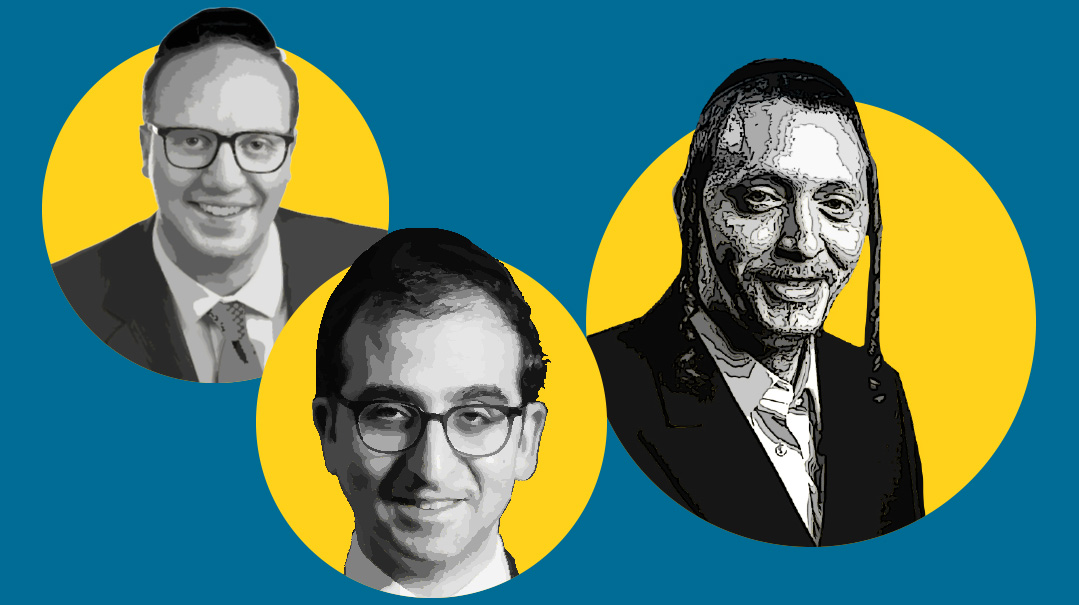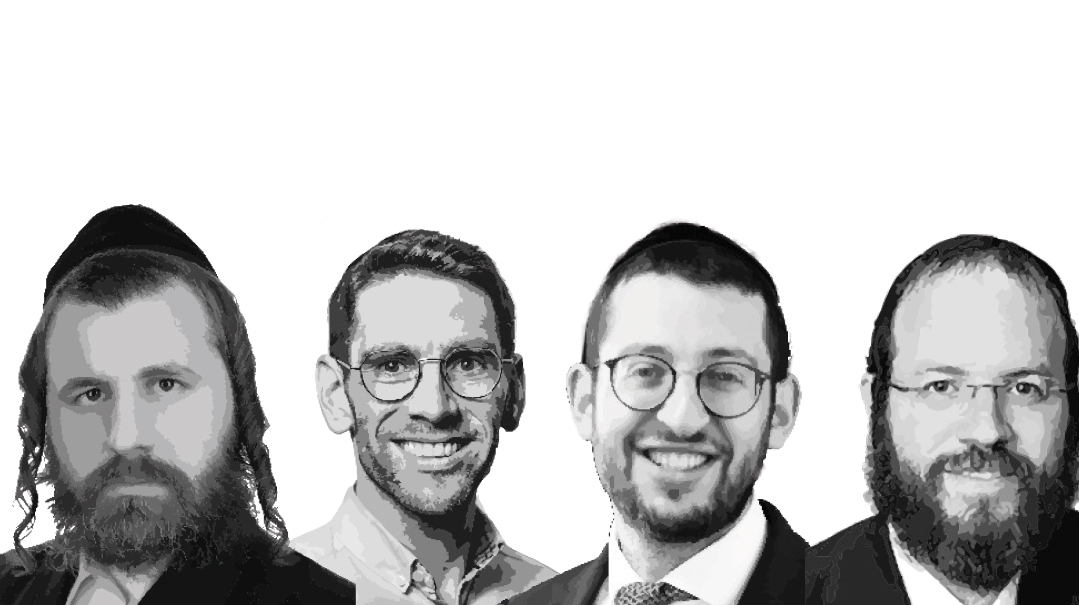“Why I’m Not Scared of AI Taking Over My Business”
| February 20, 2024Leaders in the creative industry weigh in

I am in the data and analysis field, and while AI is having a big impact on the field, I don’t think it will take over my business.
What does AI do? It makes it much easier for someone with entry-level data skills to accomplish sophisticated tasks. Al makes my team more efficient in our domain and enables us to do simple tasks outside of our area of expertise. For example, AI helped me write complex code in a programming language I hadn’t touched in two years. I have a data scientist on my team who is blown away by AI’s suggestions for complex statistical problems.
Despite this, there is still a real need for humans who understand a business’s goals and how to apply tools in the most efficient way. The key to staying relevant is to stay up-to-date on the new tools and learn the creative ways that people are applying them.
AI will not master the people who master AI.
—Ephraim Allon, founder and CEO of DataSense
AI, for all its bells and whistles, is severely lacking the very thing that draws my clients in — creativity. I’ve poked and prodded AI with different prompts, but the output always reads like a robot reciting Shakespeare. And no one gets goosebumps from a robot’s sonnet.
I regularly use AI for what it’s good at: researching, brainstorming, and organizing data. And who knows? Maybe someday it’ll successfully mimic the human voice. But an imitation is never as good as the original, and AI will never have heart.
—Adina Kaplan, creative copywriter
AI can put together a bunch of facts based on your prompts, and it can generate a decent résumé. But it’s not taking over my business any time soon. At least not until AI can feel people.
As long as AI cannot empathize with a person and truly understand him as he embarks on the fraught road to finding the perfect job, people will still be willing to pay for a professional résumé. An automated program can’t replace a caring interviewer, who listens — really listens — to the job-seeker’s life experiences, dreams, and goals for supporting his family. AI cannot generate a document that is alive — pulsing with the hopes of the client and the empathy of our staff.
—Chayala Fasten, professional résumé writer, Resume Pros
Strategy and creativity can’t be robotized. Creating brand concepts and marketing material is about thinking out-of-the-box, analyzing deeply, and forming ideas from real experiences and emotions — how can this be quantified? Sure, AI programs are great for generic, spit-back tasks like research or note-taking, and we use them to speed up processes, but someone still needs to input the commands and craft something unique from the results. Thinking AI will take over is like believing calculators will replace accountants — they might help crunch numbers faster, but the real expertise comes only from a human brain.
The truth is, AI is actually highlighting the experts, because now more than ever, genuine creativity stands out in a sea of generic, machine-generated content. So until programmers manage to code the magic of the human mind, marketing agencies aren’t going anywhere. Real business apparently requires real AI: Authentic Intelligence.
—Shlome Steinmetz, CEO, Pivot Group
In our graphics and marketing studio, we’re not scared of AI; instead, we’ve welcomed AI tools into our process. We love that AI can often replace repetitive tasks and enable more creative possibilities. In the past, we’d have to rule out certain options because of time, location, and budget constraints; now with AI, we can often push our creative boundaries.
But there’s a significant aspect of my job that by definition AI cannot do. AI cannot mastermind creative strategy. AI doesn’t have intuition or emotional understanding like the human brain. It excels at pattern recognition and generates outputs from existing information. This kind of “brain” can’t come up with novel ideas or disruptive and head-turning concepts. It can help with the execution — but it cannot strategize a nuanced and complex creative direction. That’s just for us humans. I’m curious to see how AI will evolve and what other tasks it will replace in the future.
—Chaya Murik, director of PS Design School and Studio; creative director at Kirum Inc.
I think the frum world has an enormous advantage when it comes to staying ahead of AI — our community is so nuanced, it will definitely be a lot harder to teach AI what we all know instinctively about our world.
In my work as a recipe developer and cookbook author, I’ve seen plenty of AI being used by people outside our community. Within our community, however, I think it’ll be a really long time before AI understands why a frum woman prefers baking her cookies as sticks rather than scooping out individually, why disposable pans are integral to the life of a busy mom, and how planning ahead for Yom Tov is crucial to pulling off a (relatively) stress-free Yom Tov season.
—Miriam (Pascal) Cohen, food blogger and cookbook author
AI isn’t taking over so fast for a few reasons:
AI lacks humanness: AI does not have the capacity to produce fresh, vivid, deeply compelling writing. This may change (and AI is still helpful for first drafts), but for now, most AI copy is flabby, cliché, and lifeless. You can spot it from a mile away.
AI needs prompts: AI is only as good as the people who prompt it. So creatives will become expert AI prompters. Like creative directors, but directing AI instead of people.
AI needs strategists: Prior to creative direction, you need to craft a sound strategy — based on experience, psychology, customer research, and gut. AI cannot do this. Many creatives already are strategists to a great degree; they’ll need to double down on that.
—Michal Eisik, founder of CopyTribe
When AI can stop in the middle of generating its response, look its user in the eye and say, “Hold on, it looks like this approach is not resonating with you. Let’s dig into why,” that’s when I’ll start worrying.
—Nechy Sampson, copywriter and strategist, Owl Copy
I’m a brand strategist, and AI cannot “do” strategy. For example, here are some problems that land on my desk:
“Prospects are visiting the website but not converting. We need to fix this.” “We need to market our product, but there are too many sensitive issues we can’t discuss publicly. How do we talk about this without actually talking about it?”
Try asking these questions to AI. You’ll get a jargon-filled response — completely unhelpful in solving the problem. Only a human strategist can develop creative solutions to those problems.
AI can be useful as a tool to help implement your strategy. But only a human strategist can creatively solve real-life messaging problems.
—Chaya Glatt, brand strategist & copywriter, Chaya Glatt Copywriting
In my experience editing and proofreading computer-translated text, I often have to redo the entire thing because it comes in that mangled.
Yiddish is a highly nuanced language that often needs to be tweaked based on the target audience; there are differences in dialects and expressions used by different people who speak Yiddish. Another big factor is that Yiddish is written right to left, which often confuses computers. And finally, there are cases in which the same exact English sentence would be translated differently based on context, and there is no way for a computer to pick up on that.
—Goldie Hirsch, translator
Different jobs have always become obsolete as a result of developing technology. But innovation will never become obsolete. The key to remaining relevant is to be useful rather than having a useful skill. For instance, a town crier could excel in modern communication roles, exemplifying transferable skills. It’s about innate talent, not just specific tasks.
Effective AI use requires clear goals and strategies, areas where human insight is crucial. AI accelerates workflows, but doesn’t replace the human touch. So, will AI take over my job? I hope so. I’d love for AI to do some tasks for me (that I don’t like to do anyway) while I get to spend some more time doing things that AI cannot do.
—Shmuli Rosenberg, CEO, fwd/NYC
(Originally featured in Mishpacha, Issue 1000)
Oops! We could not locate your form.






